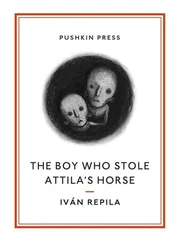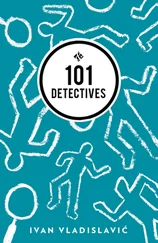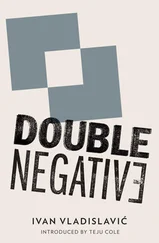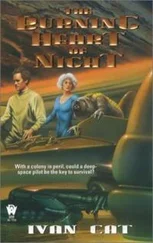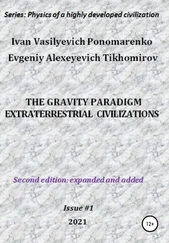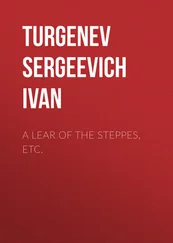At that moment Malgas heard a metallic click in the air between Nieuwenhuizen and himself. More than likely it was the gizmo slotting into place on the gas-bottle. But Malgas came to believe that it was his relationship with Nieuwenhuizen shifting gear from co-operation to collaboration.
At dawn on the appointed day Malgas shouldered a brand-new rake (the price-tag was still wrapped around one of its colour-co-ordinated teeth) and marched next door.
“Malgas.”
“Father.”
“How goes?”
“Well. Yourself?”
“Raring to go.”
“Same here.”
“Good.”
They went on in this way, exhaling small talk in fussily pinked clouds of condensation, while Nieuwenhuizen decanted two mugs of coffee from the three-legged pot. Malgas was so caught up in the drama of the situation that he didn’t think to ask after the gas-bottle gizmo. He found himself copying Nieuwenhuizen’s clipped sentences. The restraint of the exchange marked it as a prelude to constructive effort and Malgas was proud to keep up his end.
“Sugar?”
“One.”
“Honey. .”
“Better.”
They sipped the scalding coffee. “It’s got a muddy aftertaste,” Malgas thought. “And what’s this afloat in it? Fish-scales?” But he didn’t care, it was strong and stimulating. The ear of the mug still would not admit his finger, but that didn’t matter either, because he preferred to curl his hands around the hot tin bowl, the way his host did.
Nieuwenhuizen put forward a plan of action, starting with the grid — big letters down this side and Roman numbers down that — and explaining tersely how one might approach the intersections as appropriate points at which to heap up the dead vegetation. Then he posed an important question: At a later stage, when the ground had been cleared in an economical fashion, might one not convey each of these small provisional heaps to a depot in the vicinity of the camp, on the spot now occupied by the fireplace, and amalgamate them into one mountain to facilitate the incineration? No?
Malgas listened with mounting excitement. The grid system was a revelation. As for the words hovering in bubbles around Nieuwenhuizen’s head, moored to his lips by filaments of saliva — “economical,” “provisional,” “accumulation,” “depot,” “vicinity,” “incineration” — they left him in no doubt that a great deal of intelligent forethought had gone into the plan, and he felt a thrill of vindication. With a full heart he set out for the work-station allocated to him on the wagonwheel frontier. Nieuwenhuizen stayed behind at the tent, tinkering with one of his gadgets.
“Wish me luck, Father.”
“Good luck, Malgas.”
The sun was rising as usual behind the hedge when Malgas tramped across the devastated plot. Grass and weeds mown down, fractured stems and lacerated leaves, flayed boles and bulbs, dismembered trunks and dislocated roots told a moving tale of cruelty and kindness in the name of progress. The carpet underfoot was steeped in dew and its own spilt fluids, and it offered up a savoury aroma as he passed over. The sun brushed the back of his neck with tepid fingers and made him shiver with anticipation. His eyes in turn caressed the bruised skin of the horizon, and then snagged on the protruding tip of his own rooftop. It was stained, he noticed, with the blood of the dawn. He went on bravely. The house thrust itself up through the horizon with every step he took, until it squatted clean and complete in the early morning air. The walls were as white as paper, the windows in them were blinding mirrors. The wagon-wheels began to plash through the sunshine: soon he would be bathed in the full splendour of a new working day.
Malgas arrived at the wall and took his stand. He squinted back the way he had come. For a split second he lost sight of the purpose of his journey — but before this seed of doubt could germinate, his eye fell on Nieuwenhuizen in the distance, in the lee of the hedge, with his fork pointing dramatically into the air. As if they had rehearsed this moment carefully beforehand, Malgas raised the rake in a reciprocal gesture. There was a symmetrical pause, charged with intent. Then, as one man, they set to.
Malgas spread his feet and put his head down. The shaft of the rake slid through his fist, the teeth bit into the matted stalks and stems, he drew the bounty in. At first he felt stiff and clumsy. But at each pass the rake grew more accustomed to use, as if the wood itself had softened to the shape of his hands.
Nieuwenhuizen struck up a song, but Malgas shut his ears to it, went in search of the rhythm in his own musculature and found it without difficulty. He was a natural. He began to perspire in a healthy, deserving way. The sun rose quickly, liberating delicious scents of decomposition from the vegetation. In no more than an hour Malgas had raised three provisional heaps, each comprising four barrowloads, each at home on the exact spot the grid prescribed.
“Pssst.”
Malgas’s sense of communion with the fruits of his labour was so pronounced by now that for a moment he thought one of the heaps was addressing him in a cryptic language of gaseous vapours.
“Hey!”
There was no mistaking this human voice. He traced it to the small face of his wife, which jelled in a pie-slice of spokes and rim. He motioned the face to go away, but instead it grew larger and spoke again.
“Come here. I want to ask you something.”
“Get back in the house.”
He turned his attention to his work, but his rhythm had been broken: the rake twisted and fell on barren soil.
“What is it then? Be quick.”
“Why aren’t you at work?”
“I’m working.”
“You know what I mean: who’s minding the shop?”
“Van Vuuren.”
“That monkey. What he knows about Hardware’s dangerous. I can see him swilling our life’s work down the drain.”
Mr did not answer. He loosened one of his laces and tied it again in a double bow.
“Typical,” she sniffed. “You’ll give Him the shirt off your back, although you don’t know Him from Adam, while your own family goes hungry.”
“I have to help him.”
“You’re doing everything, you big baby. Look at Him. He’s messing around, pretending to be busy.”
Mr straightened his back wearily to watch his collaborator at work on the other side of the plot. Nieuwenhuizen lifted a bale of grass on his fork and shook a cloud of red dust out of it. Then he dumped the bale and thrashed around in the dust, snorting and waving the fork in front of him like a pair of horns. He had tied a bandanna with yellow polka dots over his mouth and donned a big-game hunter’s hat with a leopard-skin band and the brim turned up sharply on one side. His dirty grey hair jutted out on that side like a scorched tuft of grass.
Nieuwenhuizen waved. Mr raised his hand to wave back, and realized just then that Nieuwenhuizen was simply fanning his face. So Mr’s answering gesture had to be elided into a stretch instead and his sleeve had to mop up the sweat of his brow. This subterfuge only confused matters further, because it felt transparent and foolish. Nieuwenhuizen chuckled under his bandanna and speared another load of grass on his fork. With a flush of embarrassment darkening his tanned features, Mr went on raking. Mrs continued to speak to him, pointing out the folly of his ways, and the guile of His, but he ignored her and after a while she went away.
From her grandstand stool Mrs Malgas watched the day’s proceedings with mixed emotions.
Her husband’s part in the charade unfolding on the plot struck her as ridiculous and she very nearly laughed; yet as the day advanced and he toiled on with the same diligence, she felt obliged to take him seriously. It was as if a mantle of nobility had settled over him. She tried to brush this impression aside but it persisted, and she gazed upon him with new eyes, eyes which refused to distinguish between the man and what he was doing. She found herself becoming tearful.
Читать дальше


